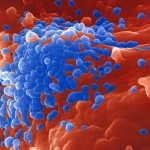Lien vers Pubmed [PMID] – 22068164
Gut 2012 Aug;61(8):1197-208
INTRODUCTION: Hepatitis B is a major cause of death in patients with HIV who usually receive drugs active against hepatitis B virus (HBV). The variability of HBV DNA over time has been little studied. Recombination between different HBV genotypes has been described in many cross-sectional studies, but the frequency of intergenotypic and intragenotypic recombinations in individual patients is unknown.
METHODS: 32 HIV-positive and 11 HIV-negative patients who remained HBV viraemic despite antiviral therapy for at least 1 year were studied. Genotyping was based on line probe assays and genotype-specific PCR. The variability of HBV DNA over time was examined with restriction length and single-strand conformational polymorphism (RFLP-SSCP). HBV DNA sequences obtained by cloning a 2800 bp PCR fragment were analysed for phylogenetic parameters (diversity and selection pressure) and recombination was detected with RDP3 software.
RESULTS: Large fragments of HBV DNA could be amplified at two different time points in 33 patients. Marked quasi-species modifications occurred in 14 patients. In seven of these patients and in one patient with no change detectable by RFLP-SSCP, the 2800 bp fragment was cloned at two time points at least. In four (57%) of these seven patients, various intergenotypic or intragenotypic recombination events were detected between subvariants present in the initial quasi-species. Recombinant fragments mostly harboured antiviral resistance determinants and reflected a large increase in diversity and in positive selection pressure on the entire HBV quasi-species.
CONCLUSIONS: In coinfected patients, HBV DNA recombination events are frequent during antiviral therapy, corresponding to increased positive selection pressure on the HBV quasi-species and to conservation of antiviral resistance mutations. In this population and at the individual level, recombination is a significant source of HBV genetic variability.

